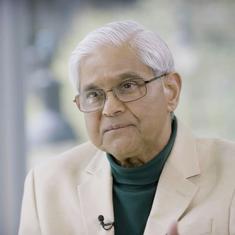Centre allows sale of electoral bonds from December 5 to December 12
The sale coincides with the second phase of the Gujarat Assembly elections scheduled on Monday.

The Centre on Saturday opened a new window for the sale of electoral bonds from December 5 to December 12.
The decision came nearly a month after it had amended the rules of the electoral bonds scheme on November 7 to allow its sale for 15 extra days during the years when elections are due in states and Union Territories.
The Centre then made use of the amendment to open a window for the sale of electoral bonds from November 9 to November 15, ahead of the elections in Himachal Pradesh and Gujarat. The announcement made on Saturday also coincides with the second phase of the Gujarat Assembly elections scheduled to be held on December 5.
Electoral bonds are monetary instruments that citizens or corporate groups can buy from a bank and give to a political party, which is then free to redeem for money. The Centre had first introduced electoral bonds in January 2018.
The bonds are available for purchase for a period of 10 days in the months of January, April, July and October. An additional 30 days window is allowed in the years of general elections.
Activists and non-governmental organisations have questioned the transparency of the bonds as no one is required to declare their purchase of these interest-free bonds and political parties do not need to show the source of the money.
However, the government has reasoned that the money is unlikely to be “black” since it has to be given by cheque.
On November 22, Congress leader Jaya Thakur challenged the government’s move to open the additional 15-day window for the sale of electoral bonds in November in the Supreme Court.
A bench of Chief Justice DY Chandrachud and Justices Hima Kohli and JB Pardiwala had said it would hear the petition along with other pending pleas challenging the electoral bond scheme on December 6.
Petitions against the scheme have been filed by two non-governmental organisations – Association for Democratic Reforms and Common Cause. The petitioners questioned why the government introduced the scheme through a Money Bill, thus bypassing the Rajya Sabha.









